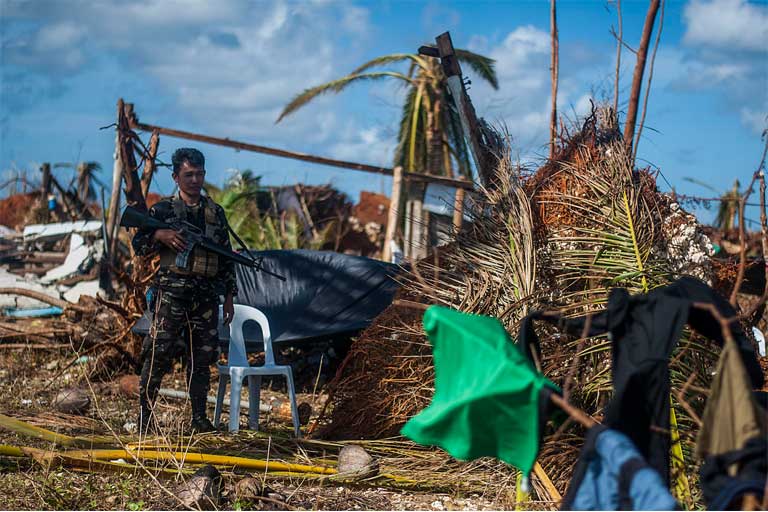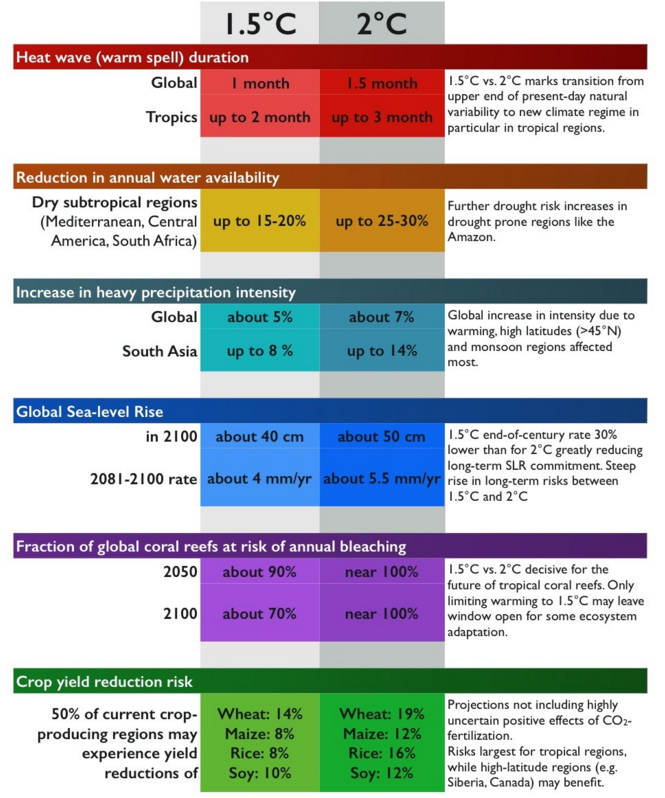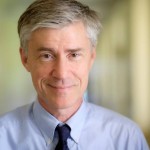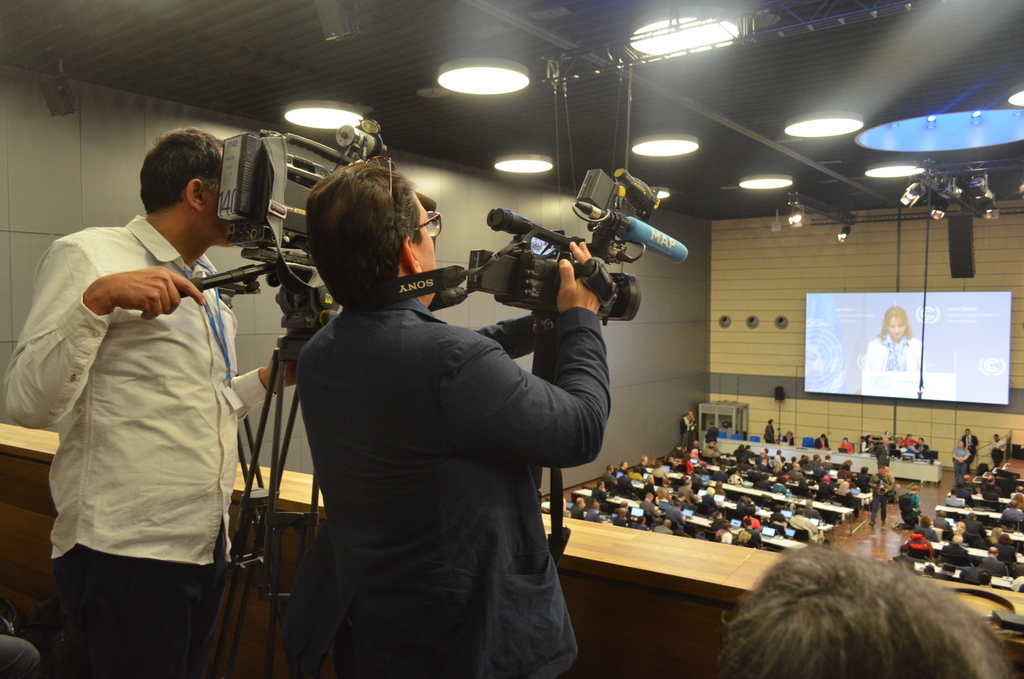A fuller treatment of this story was published on mongabay.com here.

A Filipino marine stands guard at the village of Guiuan in the aftermath of Super Typhoon Haiyan. Photo by Mass Communication Specialist Seaman Liam Kennedy courtesy of the U.S. Navy.
By Justin Catanoso
The UN climate summit is entering its final 48 hours of negotiations, and U.S. Secretary of State John Kerry, in a packed press conference, today (Dec. 9, 2015) promised an unprecedented agreement. Some 186 countries will agree, to some voluntary extent, to reduce their carbon emissions in order to hold global warming from pre-industrial times to below an increase of 2 degree C by 2100.
“We can accomplish so much more in the next few days, the next few hours,” Kerry said. “The decisions are tough, the debates are complex. But we all know the situation. We won’t leave Paris without a agreement And we all know what a effective agreement that looks like. It needs to be as ambitious as possible.”
To that end, a steady drumbeat of momentum has built in negotiations this week toward a more aggressive global warming target. A new catch-phrase has emerged in one press briefing after another: “1.5 to stay alive.”
“1.5 degrees is vital to stay alive,” said Samantha Smith with WWF International in a briefing Tuesday. “That should be the long-term goal.”
A group of 20 countries which call themselves the Climate Vulnerable Forum — think Seycelles, Maldives, the Marshall islands — are making the most noise for language in the text to hold global warming to a 1.5 degree C rise instead of 2 degrees C. The forum is chaired by the president of the Philippines, which has been hit by three of the strongest typhoons in its history in the past three years.
The web site tcktcktck.org spells out the difference in a mere half-degree Celcius:

“You want to solve the problem,” said John Knox, the UN’s special Rappateaur on the issue of  human rights obligations relating to the enjoyment of a safe, clean, healthy and sustainable environment. “Expressing 1.5 degrees as the target will have the effect of doing what’s necessary to solve the problem. Warming of 2 degrees just isn’t going to be enough to prevent massive climate change disruption over the next 50-80 years.”
human rights obligations relating to the enjoyment of a safe, clean, healthy and sustainable environment. “Expressing 1.5 degrees as the target will have the effect of doing what’s necessary to solve the problem. Warming of 2 degrees just isn’t going to be enough to prevent massive climate change disruption over the next 50-80 years.”
Already the language in the final text appears to be fluid. Where it used to say “2 degree C,” there are now options such as “below 2 degrees C” or “far below 2 degrees C” or “between 1.5 and 2 degrees C.” Few will predict where the language will land.
There’s just one problem, said Alden Meyer of the Union of Concerned Scientists. If the world could somehow magically stop burning fossil fuels tomorrow, the damage baked into the climate already is leading global warming to at least another 1.3-degree rise by 2100. Since that’s not going to happen, a target of 1.5 degree C may simply be unrealistic, Meyer said.
 Last year (May 2016), I was fortunate to cover the first week on the UN mid-year climate conference in Bonn, Germany. This year, under the specter of a US president threatening to pull out of the historic Paris Agreement, I produced a story for Mongabay from my home office in North Carolina. The story is here. Thanks to editor Glenn Scherer for his quick and thorough work. The story quickly hit Mongabay’s Best Read list at No. 5.
Last year (May 2016), I was fortunate to cover the first week on the UN mid-year climate conference in Bonn, Germany. This year, under the specter of a US president threatening to pull out of the historic Paris Agreement, I produced a story for Mongabay from my home office in North Carolina. The story is here. Thanks to editor Glenn Scherer for his quick and thorough work. The story quickly hit Mongabay’s Best Read list at No. 5.


